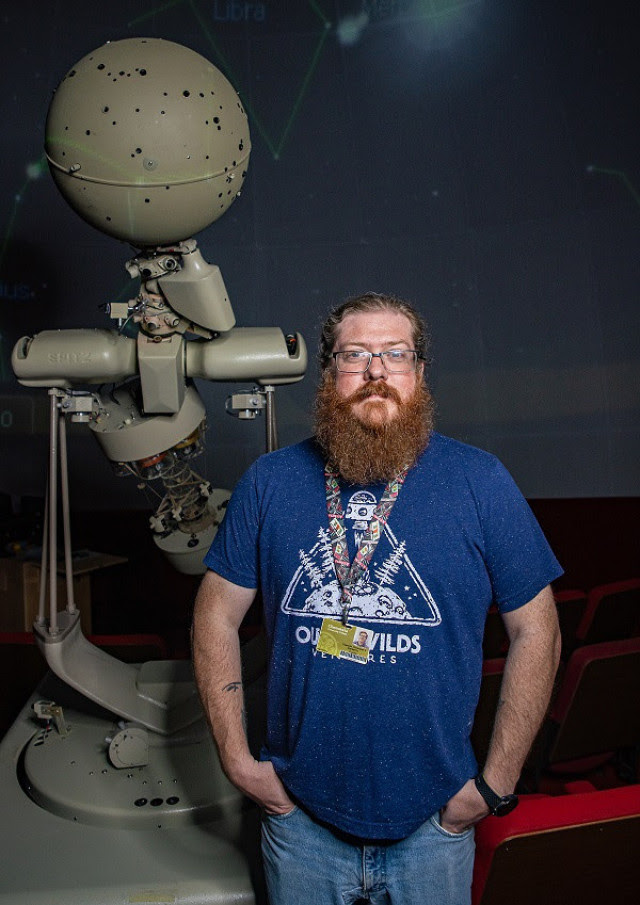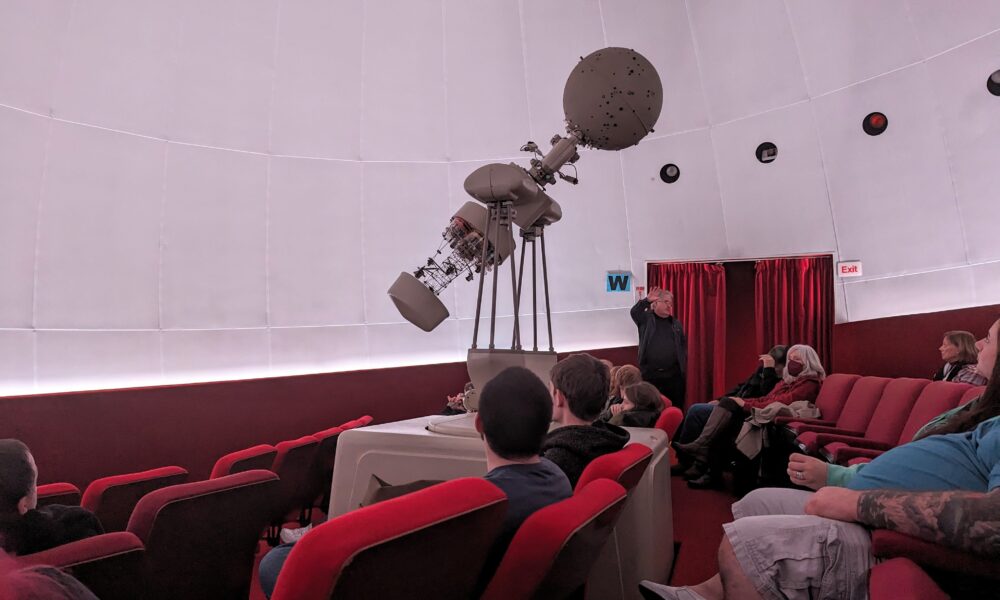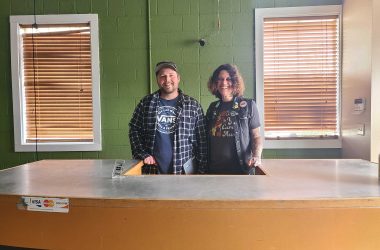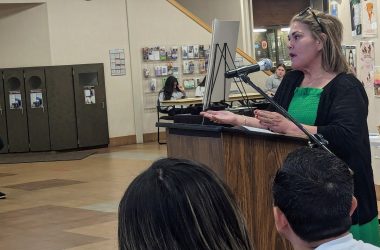Growing up in Stayton, Chris Claysmith liked looking at the full night sky.
But he didn’t give astronomy much thought until he was a broke college student.
While studying physics at Oregon State University, Claysmith asked his professors if there was a job he could take on for extra money. Because of the large overlap between physics and astronomy, he ended up running labs for an astronomy class.
“This stuff is way cooler than I ever thought. I really fell in love with astronomy by teaching it to other people,” he said.
Claysmith now gets to inspire a similar wonder in others in his role as the manager of Chemeketa Community College’s planetarium.
It’s a full-circle journey for Claysmith, who took his first trip to the planetarium in sixth grade.
“I remember being really wowed by it — that it was just incredible to see the stars and to watch the entire sky rotate,” he said.
Now, he gets joy from being able to look at images of space and understand what’s happening.
“I look at this amazing collection of colors … I can go, ‘Oh, there’s a filament that’s running through that, and this dark spot here,’” he said. “There’s so much going on and being able to kind of read things that way, that is still what’s really exciting to me.”
Planetarium shows give him a way to engage the community in science and teach people about what researchers are finding in far corners of space.
“You don’t know if this is going to be the thing that makes someone go ‘I want to do that with my life,’” he said.

He’s the second person to hold the job since the planetarium opened in the late 1970s. Its original manager, Tom McDonough, is retired but still hosts shows for the public.
Claysmith recalled talking to a father who brought his children to a show several years ago about NASA’s Cassini research mission to Saturn. The man asked why the mission’s findings weren’t in the news more, and Claysmith directed him to the NASA website, where he was awed by what he found.
“People don’t know where to look and we become a resource for that,” Claysmith said.
The planetarium hosts Friday evening shows while the college is in session, led by Claysmith and a handful of other planetarium employees. Shows rotate quarterly, with a presentation about the night sky in Salem, followed by a topical video about some aspect of astronomy.
The winter show, which opens Friday, Jan. 19, covers solar eclipses, just in time for the total solar eclipse that will be visible in North America April 8.
Aside from public shows, the planetarium gets use from multiple Chemeketa science classes and school groups on field trips.
Claysmith teaches his upper-level classes in the planetarium and said students are more engaged when they have a hands-on demonstration.
“There’s a big difference between looking at something on a computer screen versus seeing a physical model versus being inside of that model to see the projection of the night sky, which is what the planetarium really is,” he said.“It’s a way to engage with stars, the universe, all of this from a more realistic point of view.”
He’s also working to open the planetarium more to other science instructors. A Chemeketa biology instructor is studying plant regrowth in the Opal Creek area following the 2020 wildfires. The area remains closed to the public, but Claysmith said he’s working with her to bring video of the regrowth to the planetarium so biology students can take an immersive virtual journey to a site they otherwise couldn’t access.
“I’m trying to make it more a resource for all of science instead of, ‘This is my planetarium, we’ll only be discussing astronomy in it,’” he said.
Planetarium shows
“Eclipse: The Sun Revealed” opens Friday, Jan. 19, at 7:30 p.m. with Claysmith presenting. The planetarium is located on Chemeketa’s Salem campus, 4000 Lancaster Dr. N.E., in Building 2, Room 171.
Subsequent shows are on Jan. 26; Feb. 2, 9, 16, and 23; and March 1, 8 and 15.
Seating is first-come, first-served with a cap of 60 people. Admission is $5, cash only. Claysmith said the shows haven’t sold out since before the pandemic. Learn more about the shows on the planetarium website.
Contact reporter Rachel Alexander: [email protected] or 503-575-1241.
SUPPORT OUR WORK – We depend on subscribers for resources to report on Salem with care and depth, fairness and accuracy. Subscribe today to get our daily newsletters and more. Click I want to subscribe!

Rachel Alexander is Salem Reporter’s managing editor. She joined Salem Reporter when it was founded in 2018 and covers city news, education, nonprofits and a little bit of everything else. She’s been a journalist in Oregon and Washington for a decade. Outside of work, she’s a skater and board member with Salem’s Cherry City Roller Derby and can often be found with her nose buried in a book.









